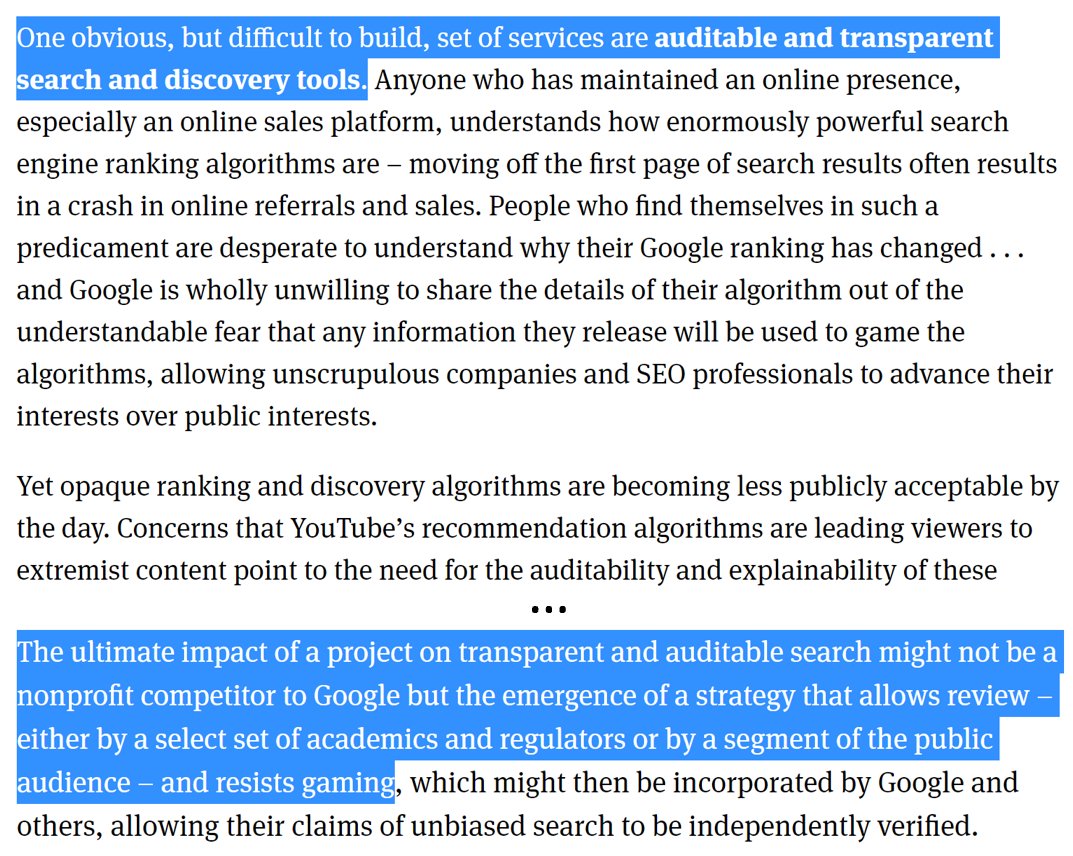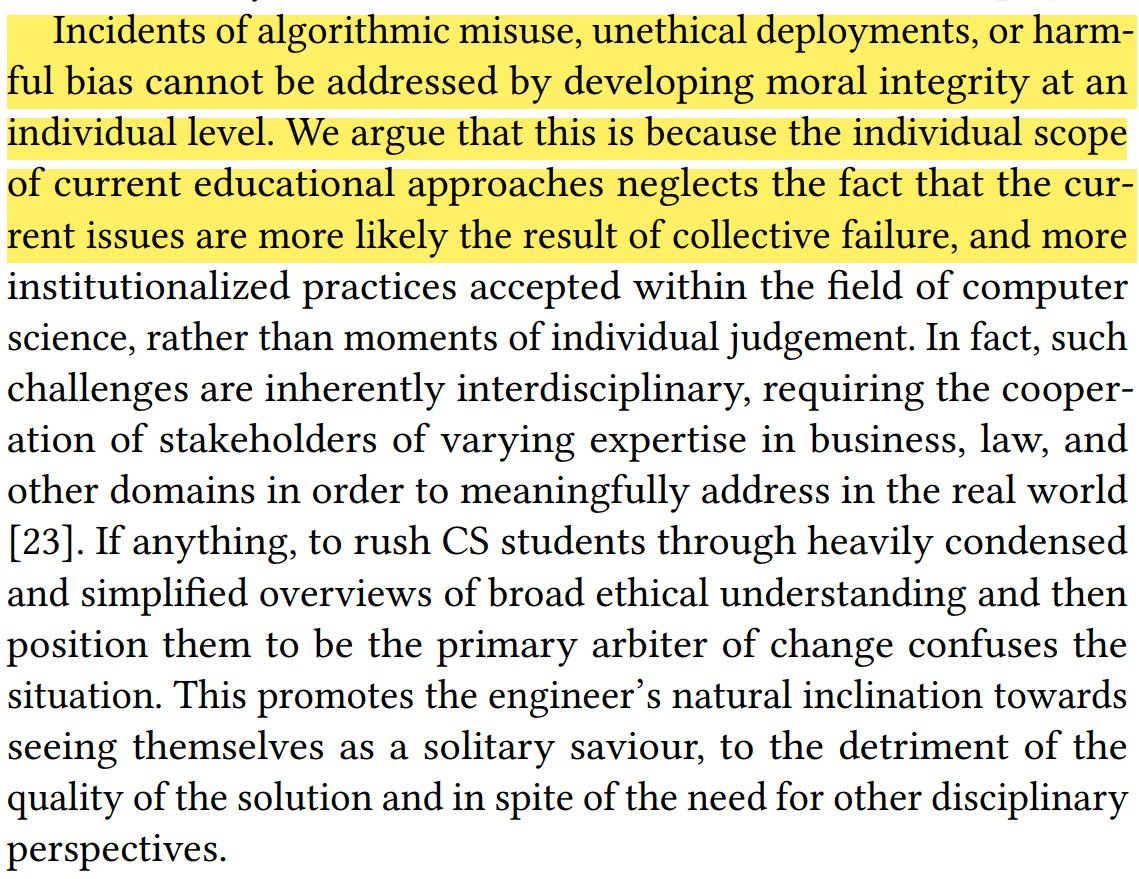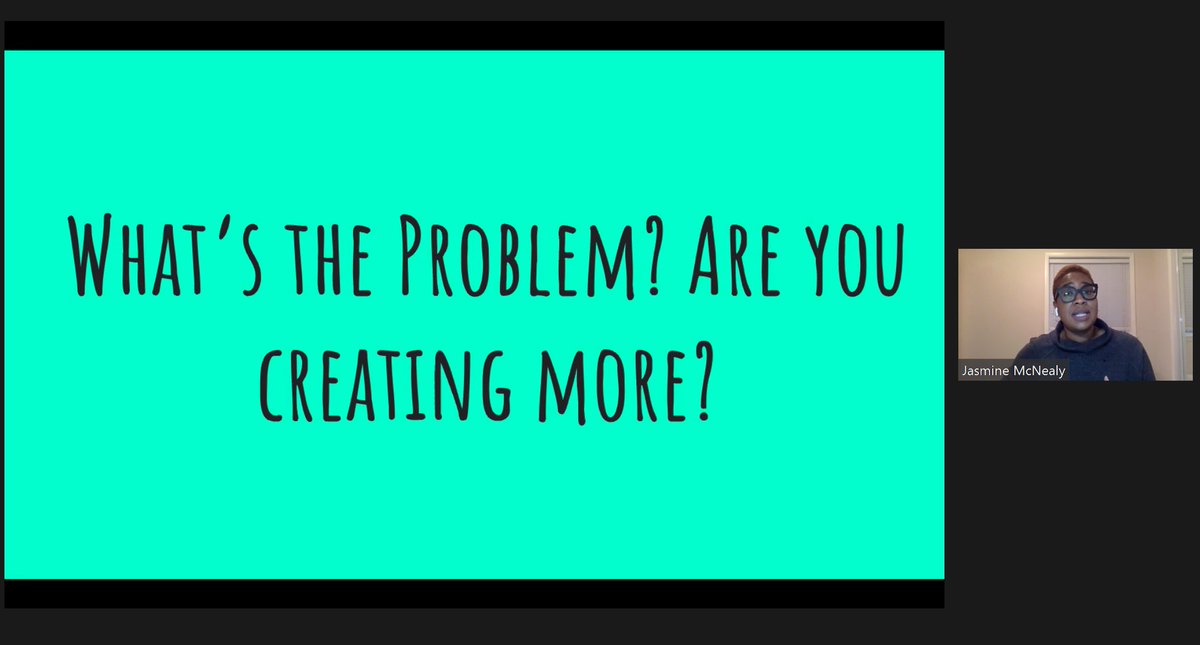
Question: what are your favorite articles/papers/essays about the idea of external audits for algorithmic systems?
In "The Case for Digital Public Infrastructure", @EthanZ proposes building auditable & transparent search & discovery tools... for the emergence of a strategy that allows review & resists gaming
knightcolumbia.org/content/the-ca…
knightcolumbia.org/content/the-ca…

Algorithmic audits will not produce accountability on their own; however if government creates meaningful regulatory oversight, algorithmic audits could become much more impactful
@AlexCEngler analysis on auditing employment algorithms for discrimination brookings.edu/research/audit…
@AlexCEngler analysis on auditing employment algorithms for discrimination brookings.edu/research/audit…
Alex also wrote a case study on how "HireVue’s shady behavior encapsulates the challenges facing the emerging market for algorithmic audits" @AlexCEngler
fastcompany.com/90597594/ai-al…
fastcompany.com/90597594/ai-al…
The algorithmic auditing trap: @mona_sloane warned about the risk of enshrining eugenicist tech in weak regulation & superficial standards
onezero.medium.com/the-algorithmi…
onezero.medium.com/the-algorithmi…

@themarkup and @propublica do fantastic independent, investigative journalism, auditing algorithms of major tech companies. Thank you @LeonYin!
https://twitter.com/LeonYin/status/1387504202700759041?s=20
This is an excellent mini-thread from @GretchenMarina with more recommendations on algorithmic audits:
https://twitter.com/GretchenMarina/status/1387430940163547139?s=20
Helpful collection of resources for investigating algorithms in society, including example investigations, method references, and guidance on FOIA, from @ndiakopoulos & @DanielTrielli
algorithmtips.org/resources/
algorithmtips.org/resources/

Mini-thread from @ndiakopoulos with more references:
https://twitter.com/ndiakopoulos/status/1387426456146481152?s=20
Great mini-thread from @brianavecchione with more resources:
https://twitter.com/brianavecchione/status/1387436305303355392?s=20
I agree, Gender Shades set a gold standard:
https://twitter.com/LeonYin/status/1387504920882995201?s=20
• • •
Missing some Tweet in this thread? You can try to
force a refresh











